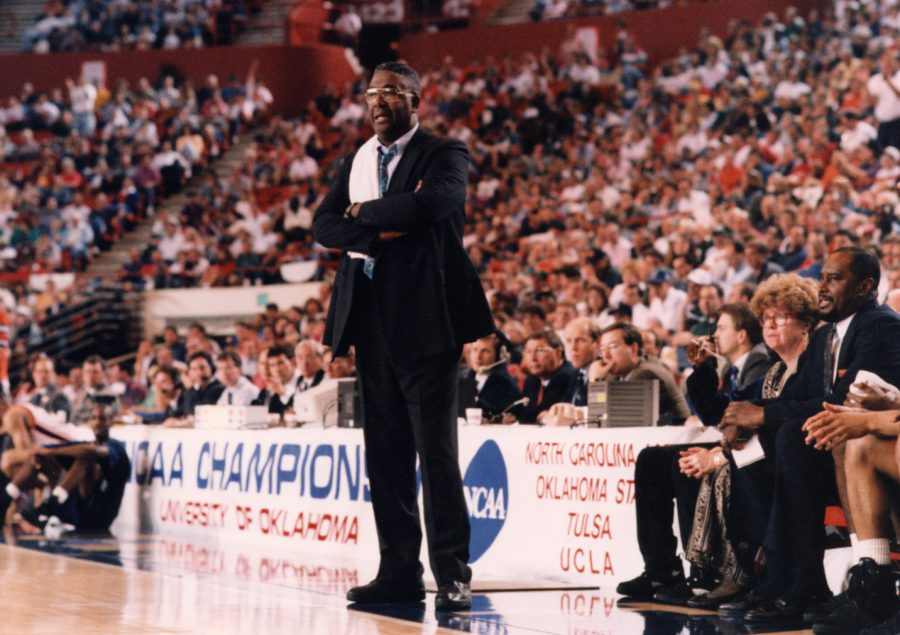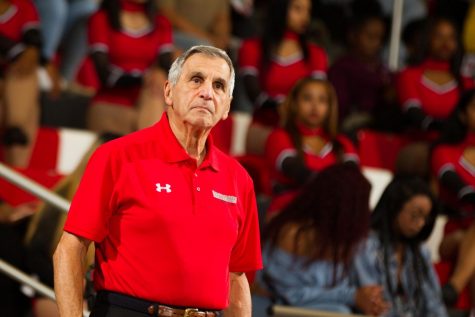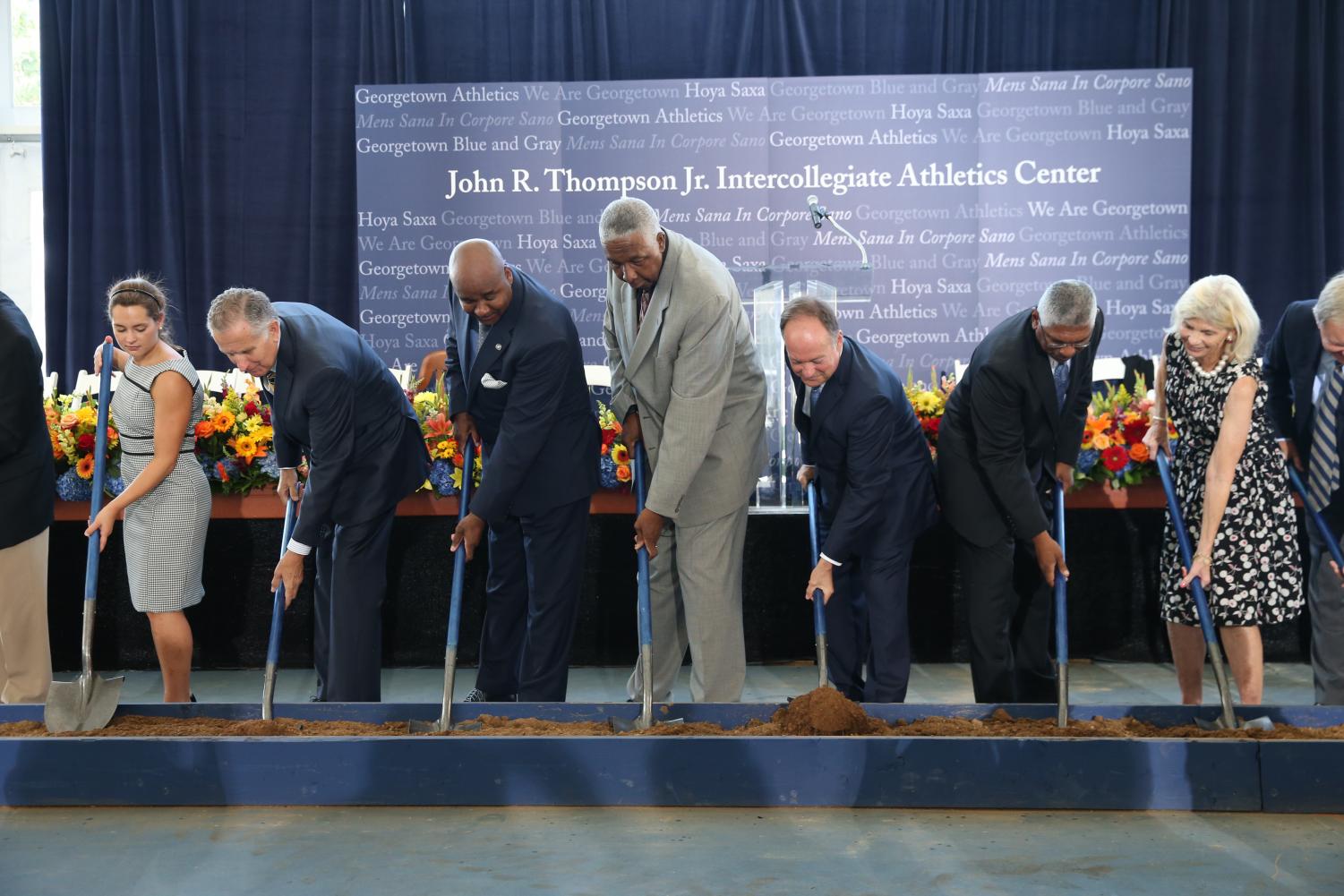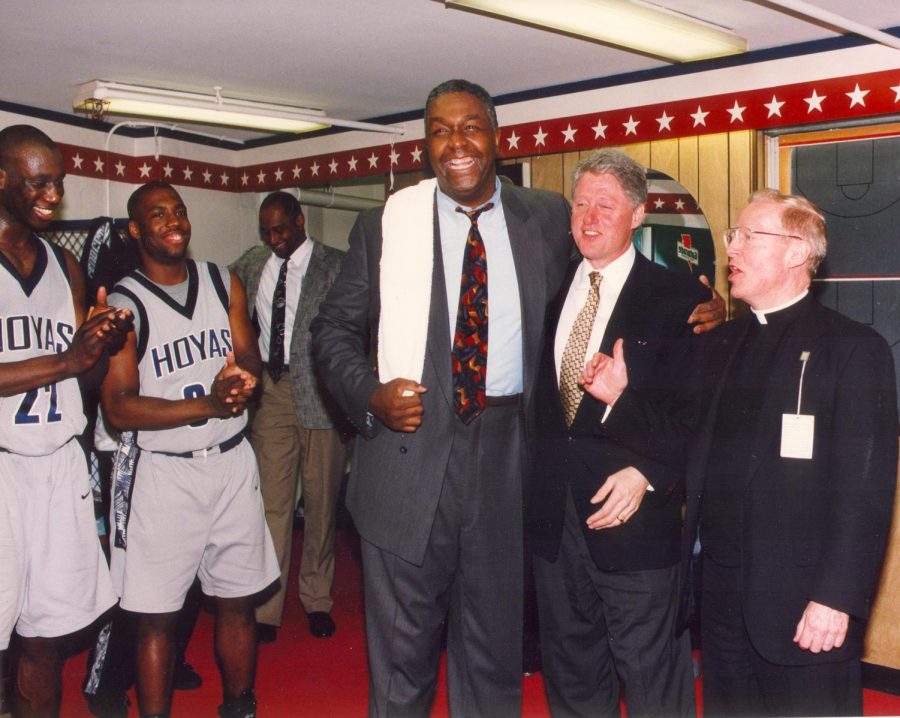Hall of Fame Georgetown coach John Thompson, remembered through the eyes of Jim Harrick
September 2, 2020
When Jim Harrick first moved to Los Angeles in the late 1950s, basketball was an afterthought. The Lakers had just moved from Minneapolis and drew sparse crowds, but that would change in the 1960s.
Basketball boomed in popularity in L.A. throughout the decade thanks to the sustained success of the Lakers and the UCLA men’s basketball team, who won several national titles throughout the ‘60s and ‘70s. The Lakers, on the other hand, were unable to get past the Boston Celtics in the NBA Finals on six separate occasions.
It was during the 1965 Finals that Harrick first heard of John Thompson Jr., then a backup center for the Celtics. A few years later, Thompson would make his name at Georgetown University as one of the greatest basketball coaches in NCAA history.
That legacy continues to live on even though Thompson died on Sunday evening at the age of 78.

“He’s always been a very outstanding basketball coach. He was an advocate for people, an advocate for basketball,” said Harrick, who is now an assistant men’s basketball coach at CSUN after head coaching stints at Pepperdine University, UCLA, University of Rhode Island and University of Georgia. “Just a wonderful man. He was a great family man, great educator and impacted many, many, many lives.”
The coaching careers of Thompson and Harrick seemed to almost parallel each other at times. Both were successful head coaches, both were at prominent programs on either coast, and both won a national championship. Although they never got the opportunity to coach against each other, Harrick and Thompson still formed a friendship.
Harrick recalled first meeting Thompson during a National Association of Basketball Coaches convention held during the Final Four and ran into him another four or five times. They never developed a close relationship, but Harrick considers Thompson as his good friend.
“I’m so old, I’ve known three-fourths [of the] the coaches in the country,” Harrick said. “Great respect for each other and I know he had respect for me.”

Whenever Thompson and Harrick did run into each other, they would take the opportunity to just sit and talk. One of Harrick’s favorite conversations with Thompson was about national championships. Both coaches knew what it took to win one, so they exchanged their perspectives on how it impacted them personally, as well as their careers and their lives.
Harrick also recalled how Thompson was not just a legendary coach, but an icon in basketball and in the Black community. He was the first Black head coach to win a national title, and is also known for walking off the court on Jan. 14, 1989 in protest of the NCAA’s passing of Proposition 48, which denied scholarships and other financial aid for incoming freshmen who failed to qualify academically. The regulation was criticized by Thompson of negatively impacting Black college athletes.
“What’s going on in America today is absolutely what John Thompson was all about,” Harrick said. “Justice and equality, he was very strong in that manner.”
“The basketball world is going to miss him,” said Harrick, before he mentioned the deaths of former Arizona head coach Lute Olson on Aug. 27, North Carolina coach Dean Smith in 2015 and UCLA coach John Wooden in 2010.
“We’re losing some great, great, great guys, but,” Harrick said as he took a long, reflective pause and let out a deep sigh. “That happens. We’re all getting older.”
Harrick, now 82 years old, added that the deaths of Thompson and other former colleagues have made him think about his own mortality.
“You get a certain age, you always think about mortality,” he said. “I tell people I’m walking up the 18th fairway and I can see the clubhouse … When you get in your 80s, you think about that a little bit. It can happen at any time.”

